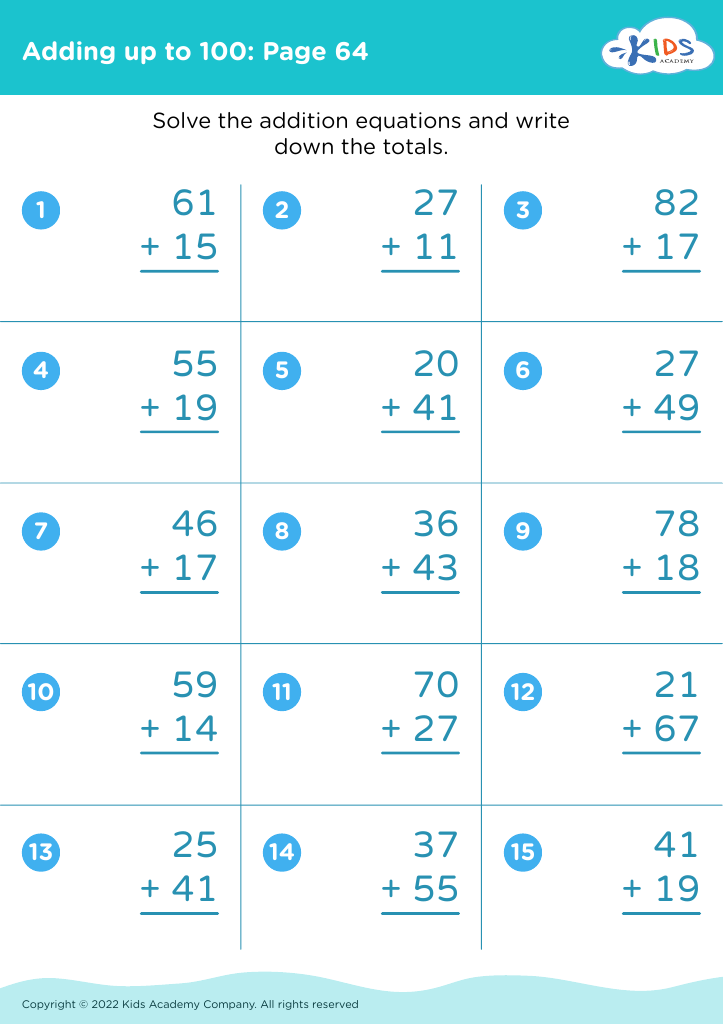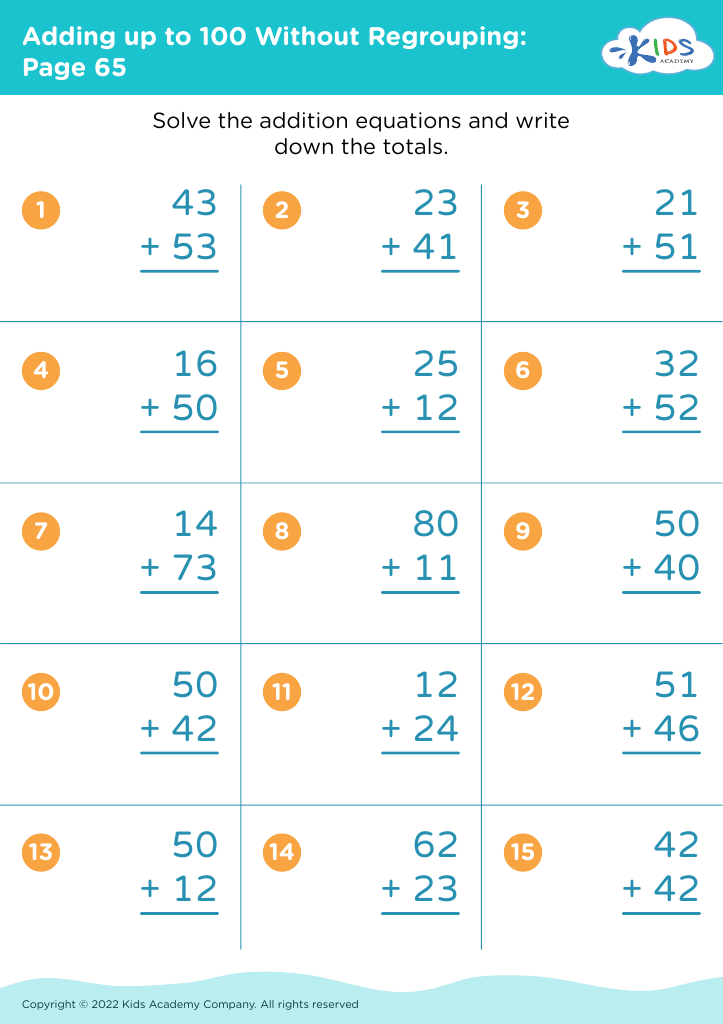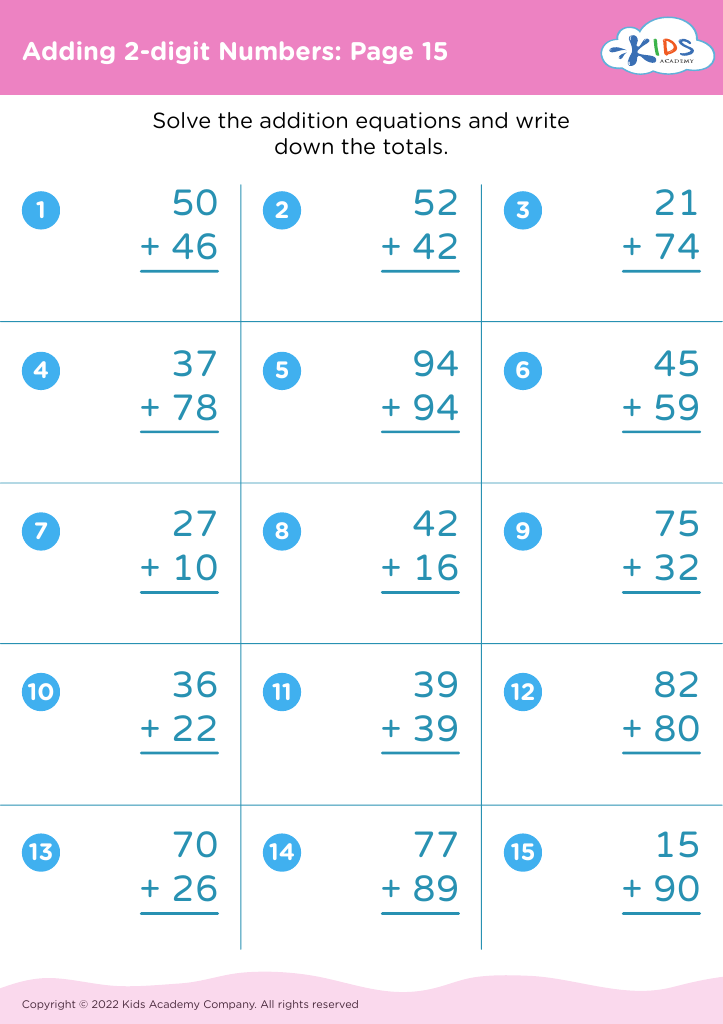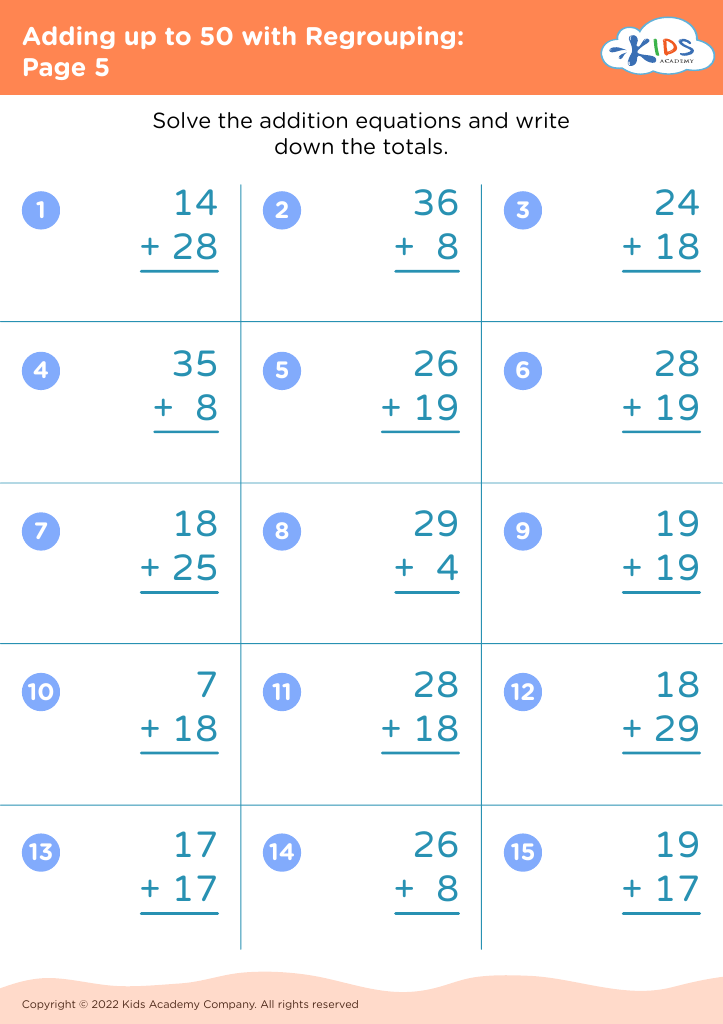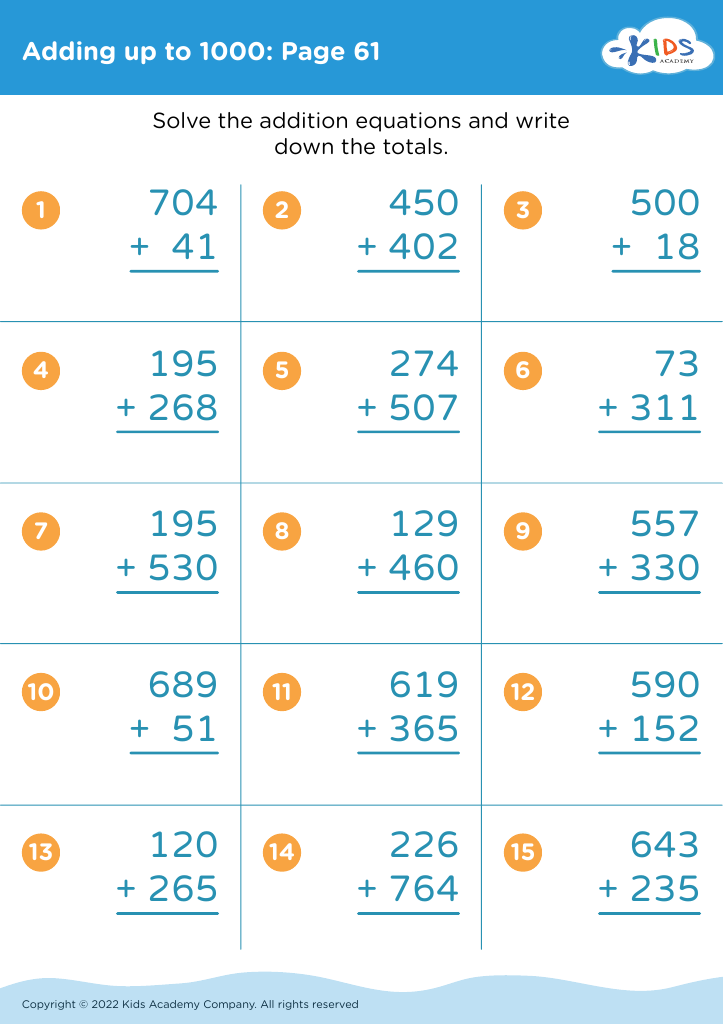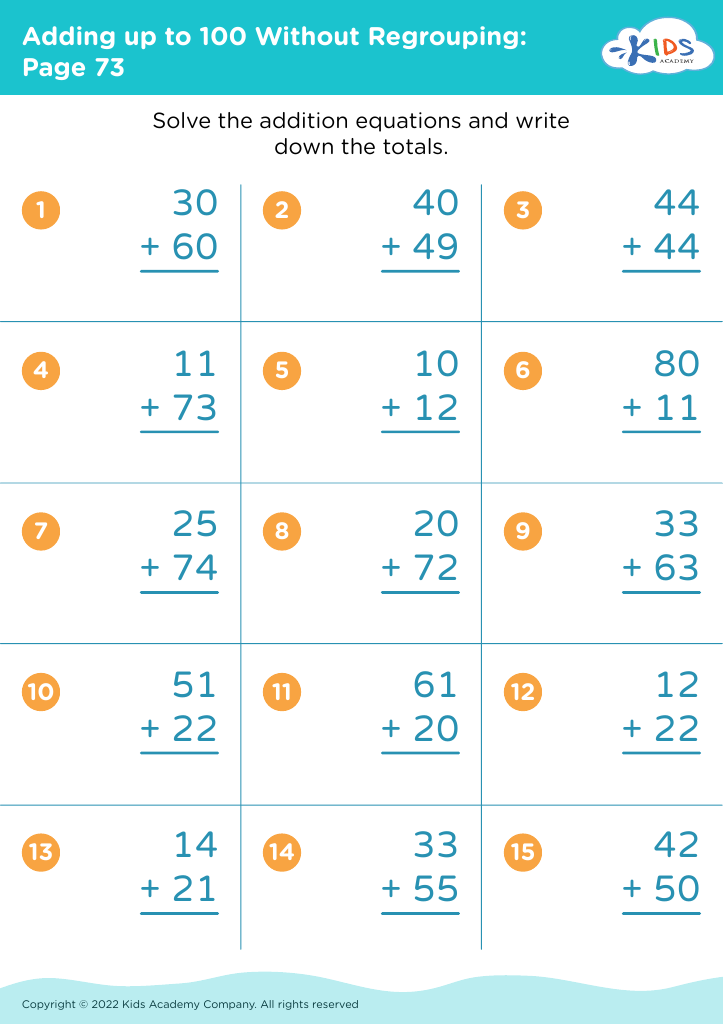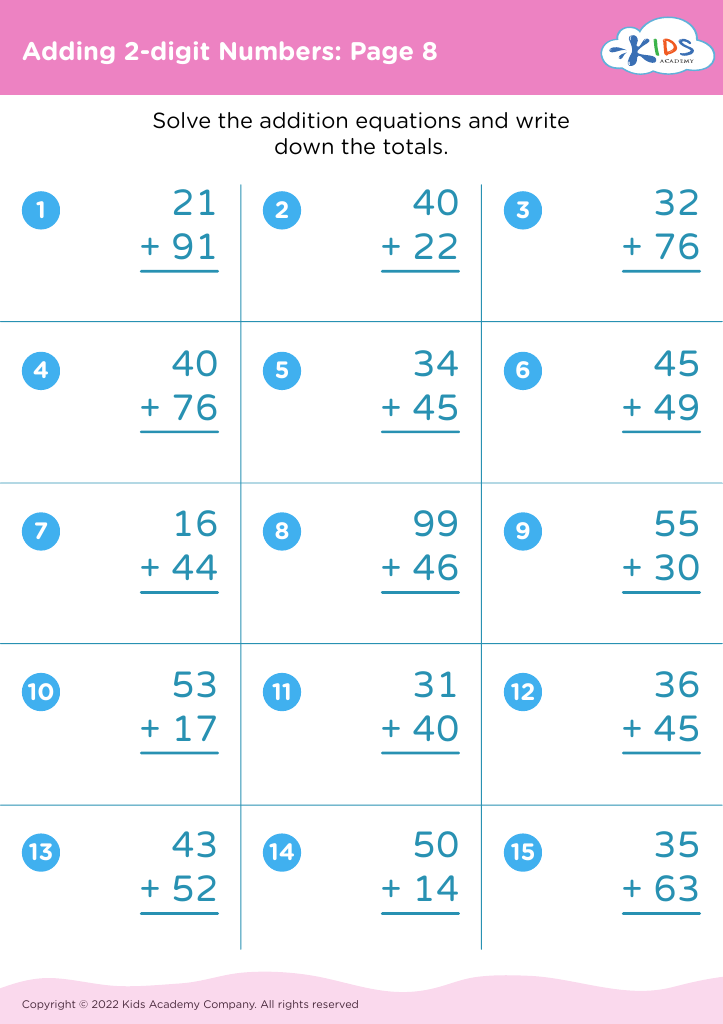Understanding fractions Math Worksheets for Ages 6-7 - Page 3
196 filtered results
-
From - To
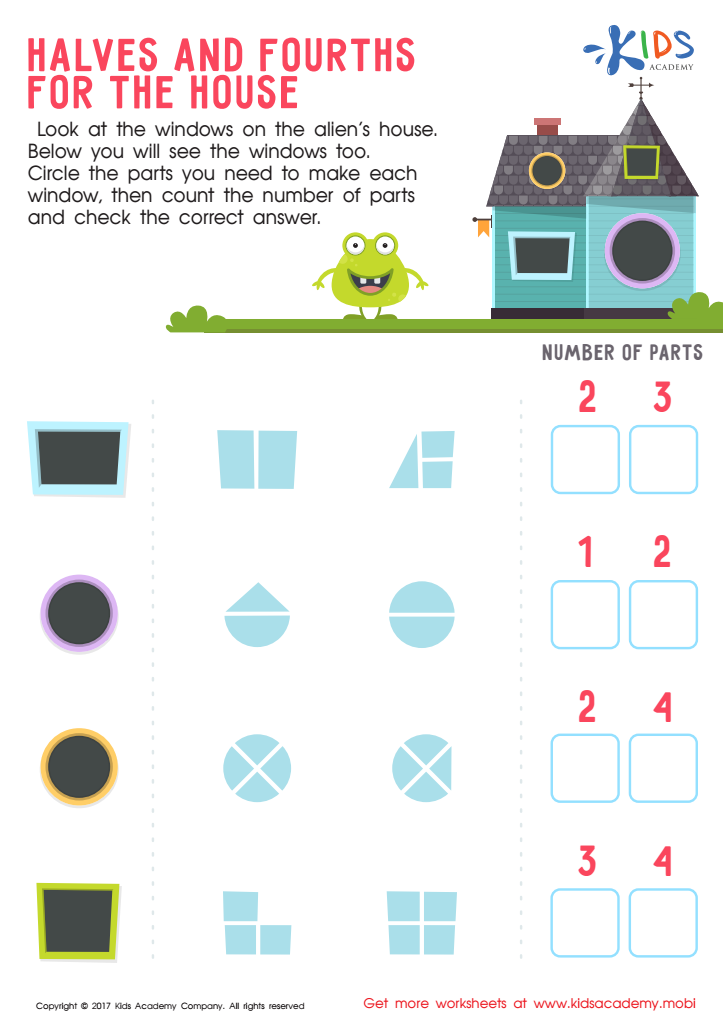

Halves and Fourths for the House Worksheet
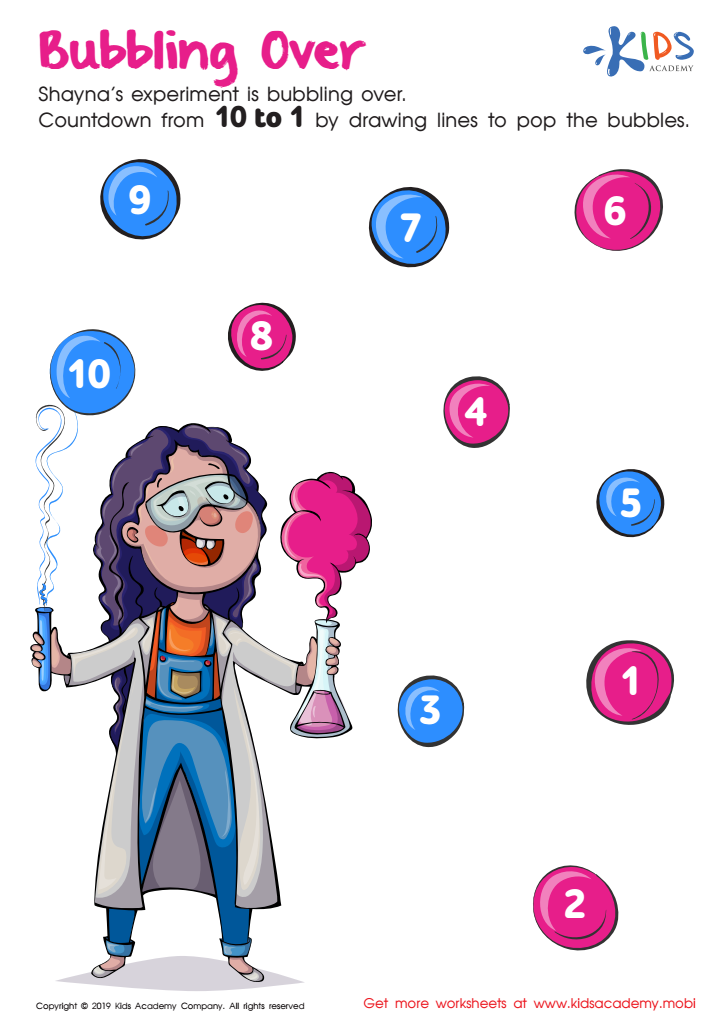

Bubbling Over Worksheet
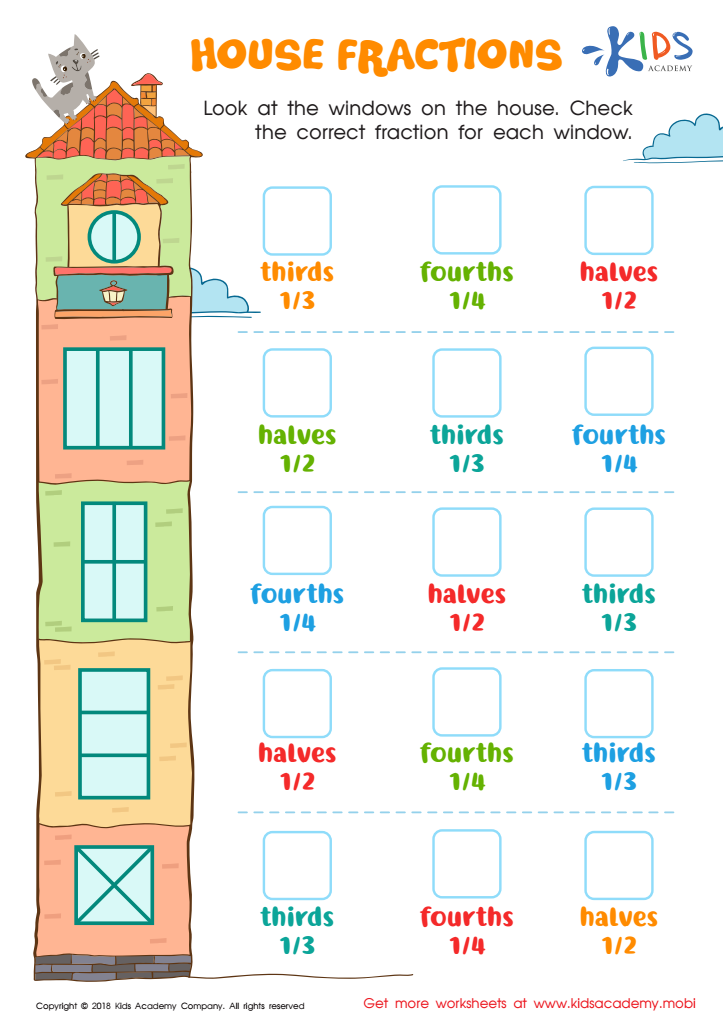

House Fractions Worksheet
Understanding fractions is an important foundational skill for children ages 6-7, as it supports their overall mathematical development and problem-solving abilities. At this age, young learners are transitioning from concrete to more abstract mathematical concepts, and mastering fractions can pave the way for future success in more complex areas of math.
First and foremost, fractions help children comprehend the concept of part-whole relationships, which is fundamental in everyday life. Whether sharing a pizza or measuring ingredients for a recipe, knowing how to divide something into parts is a practical skill. Additionally, understanding fractions lays the groundwork for arithmetic operations involving fractions, such as addition, subtraction, multiplication, and division, which they’ll encounter later in their schooling.
For teachers and parents, introducing fractions early ensures that children become comfortable with the idea, reducing potential anxiety or confusion later on. Furthermore, strong fraction skills are linked to better performance in other areas of mathematics, including algebra and geometry. Exposing young children to fractions also encourages critical thinking and enhances their ability to reason and make comparisons.
In summary, grasping fractions at an early age not only supports immediate educational goals but also builds crucial skills that will benefit children throughout their academic journey and everyday lives. Therefore, both parents and teachers should consider it a priority to nurture a solid understanding of fractions in young learners.
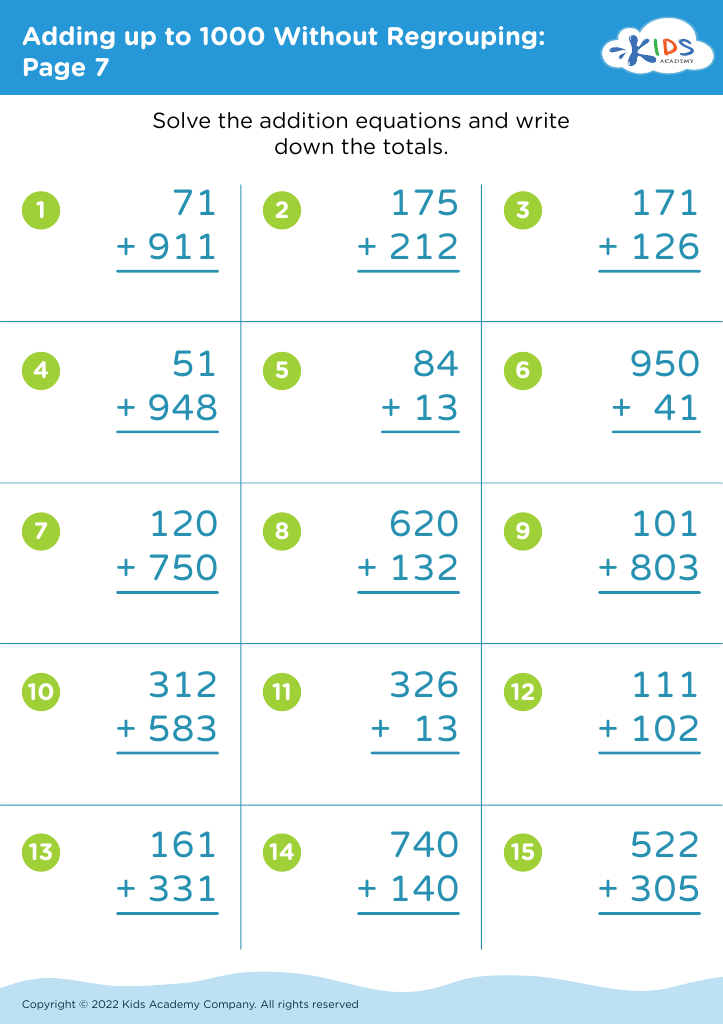

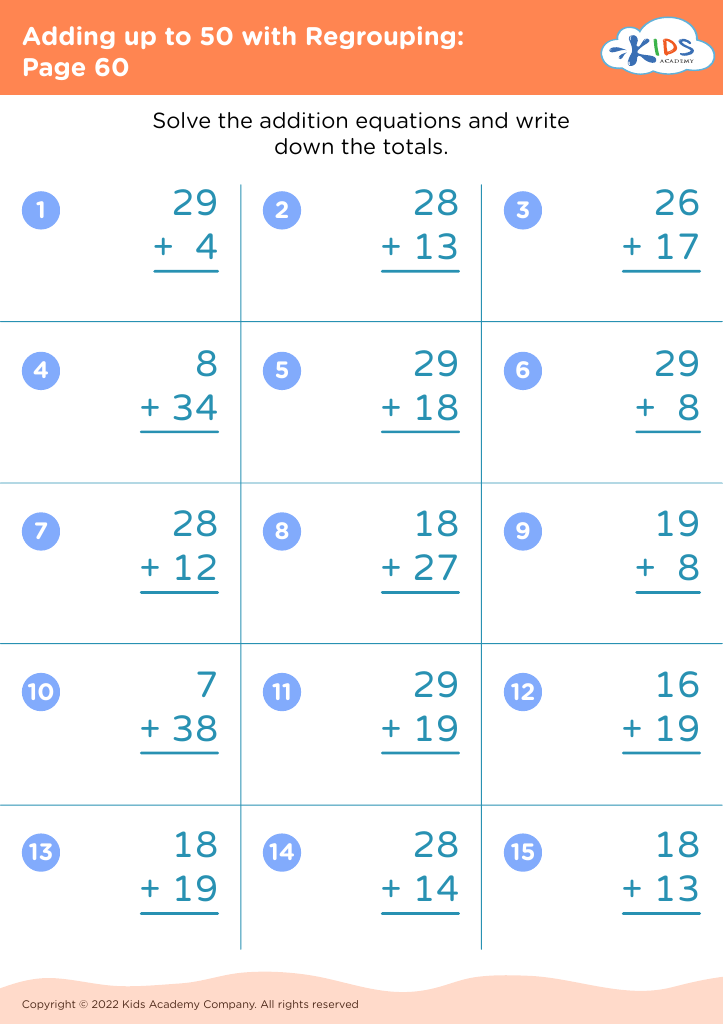
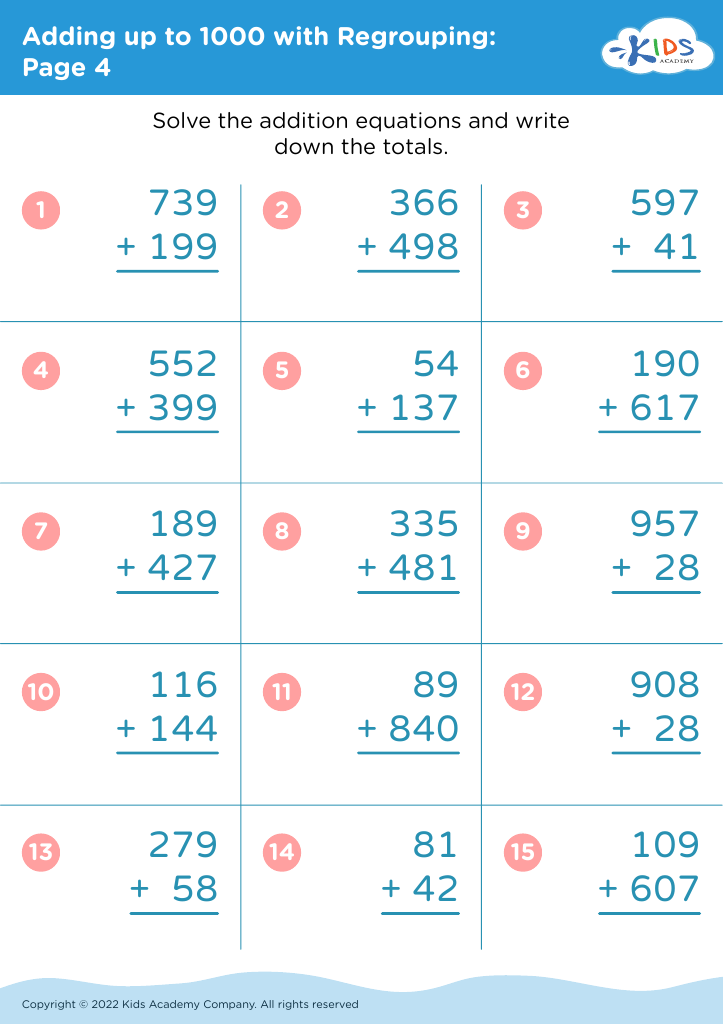
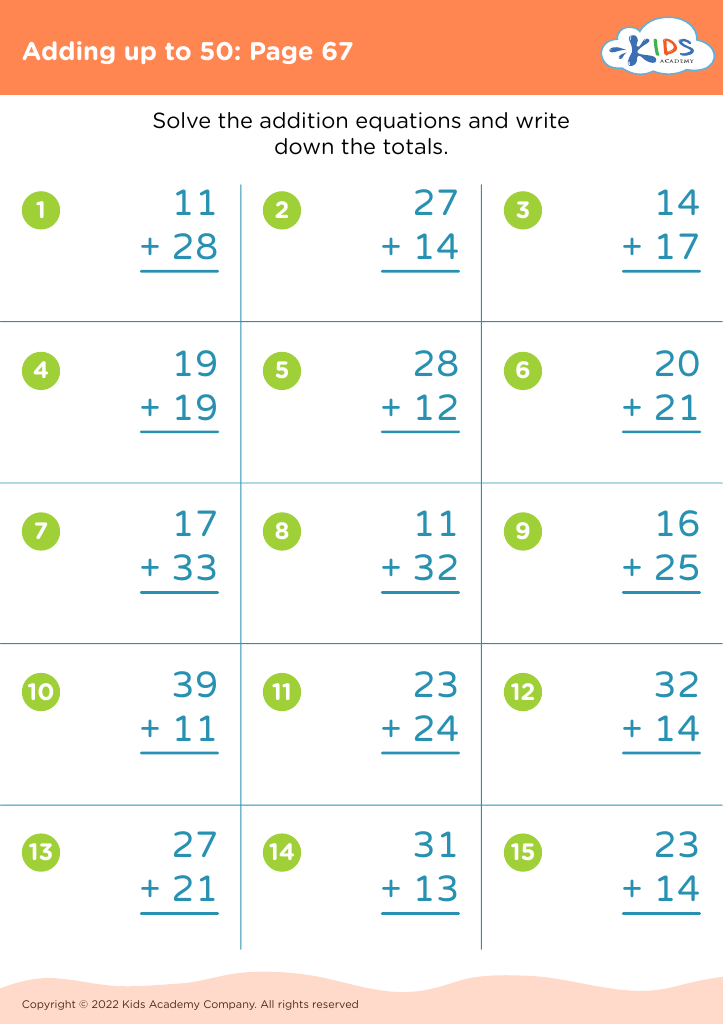
 Assign to My Students
Assign to My Students

